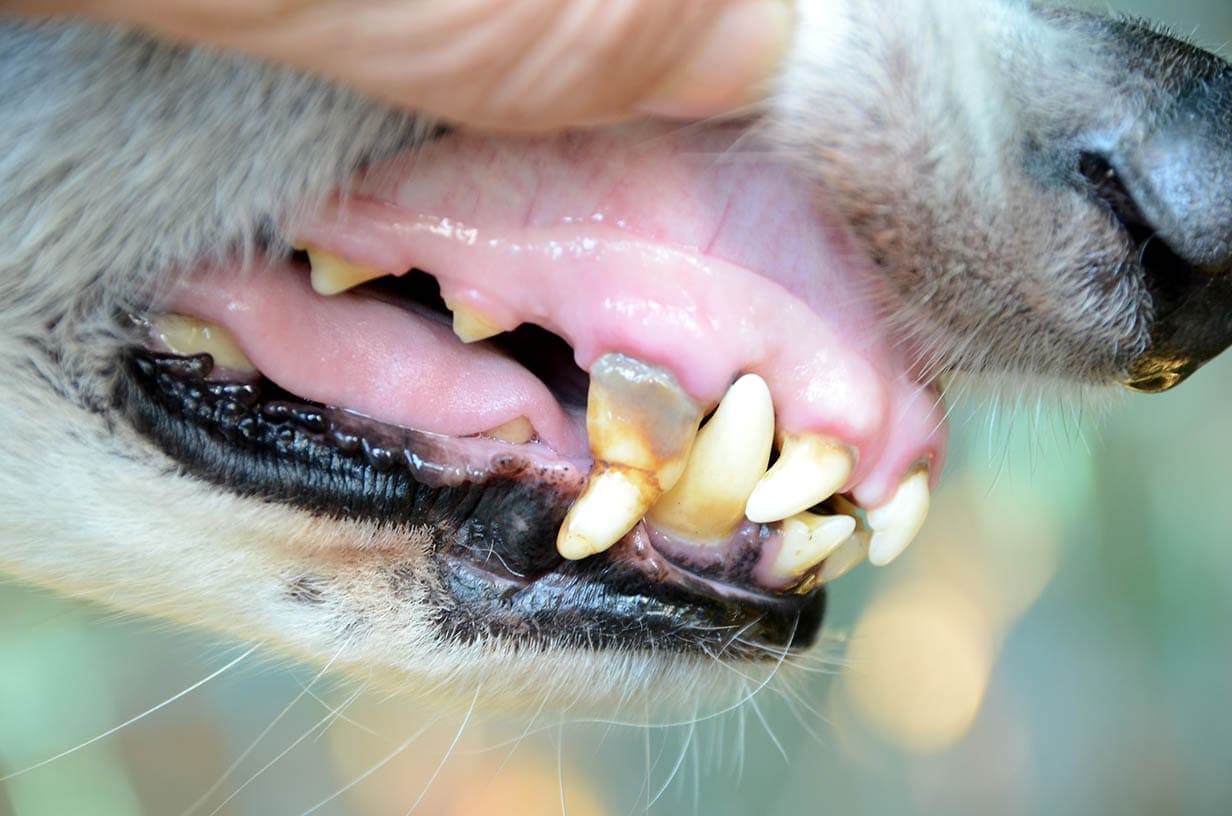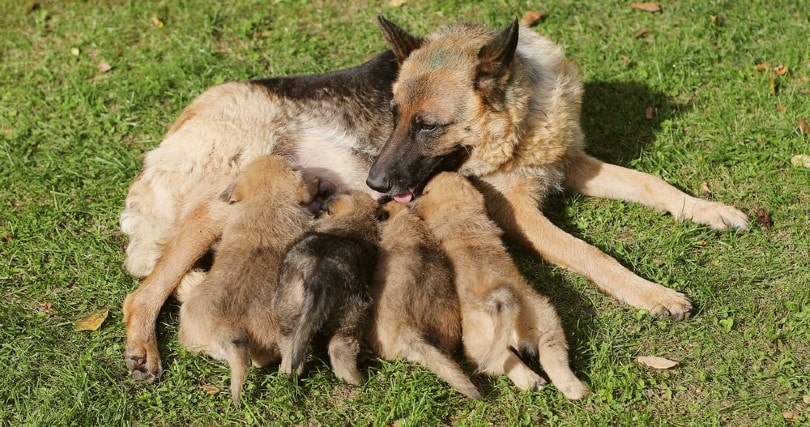Why Is My Puppy So Hyper? 5 Typical Reasons & Solutions

Updated on
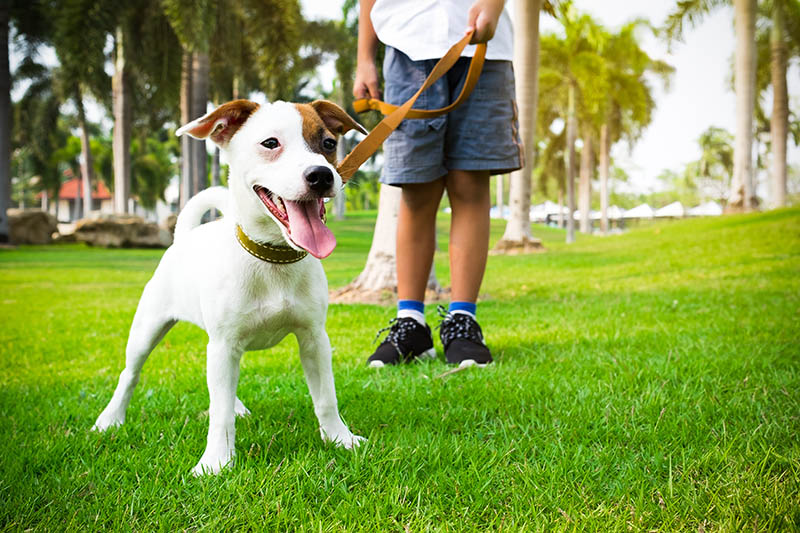
Introducing a puppy to your home can be exciting and special, but there’s always going to be a period of adjustment. Puppies are naturally excitable, and this is part of what makes them so adorable to us.
That said, if a puppy’s hyperactivity is not managed appropriately, it can quickly become destructive. Although there may be underlying health issues that cause a puppy to be unusually hyperactive, in most cases, the causes of hyperactivity in dogs can be quickly identified and remedied.
In this article, we’ll cover five of the most common reasons for hyperactivity in puppies.
The 5 Reasons Why Puppies Are So Hyper
1. Lack of Sufficient Exercise
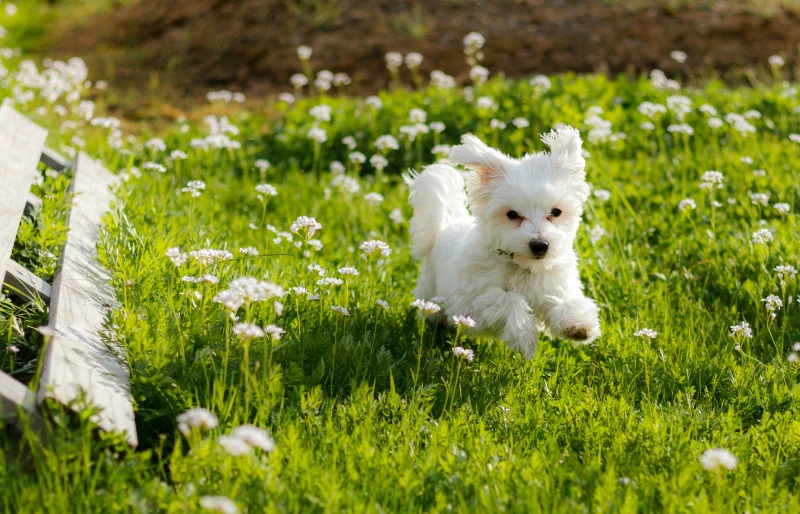
One of the most common reasons why a puppy may be restless, hyperactive, or even destructive is that they simply are not getting the chance to burn off their energy during the day.
All dogs, no matter the breed, need exercise. That said, some breeds need more exercise than others. For example, working dogs, such as Border Collies, may need a couple of hours of exercise throughout the day, while others, such as Pugs, might only need 30 to 40 minutes per day—usually spread out over two sessions.
If a lack of exercise is to blame for your puppy’s hyperactivity, then the problem is easy to solve! First, begin by learning more about your specific breed to find out how much exercise is recommended for them.
Don’t forget to take into account your puppy’s age! Puppies’ bones and joints are still developing, and it’s important not to put too much strain on them as they are growing. Speak to your vet about implementing a healthy exercise routine, which may consist of breaking up their daily workout over two or three sessions of walking, running, and playing games.
2. Lack of Sufficient Mental Stimulation (Boredom)
As well as physical stimulation, puppies need mental stimulation to keep them from getting bored. If they don’t have the chance to use their mind as well as their body, your puppy may begin to display hyperactive behavior just as you get ready to settle down!
Provide your puppy with plenty of mental stimulation to help them settle. Puzzle toys are great for keeping your dog’s mind active as they work to solve a problem before they can get their treat. Another great way to keep your pup’s brain engaged is to teach them a new trick.
Some dogs love to engage their sense of smell. Try to play games that involve “nose work.” Hide your puppy’s treats around the house for them to find. You may need to start by hiding them in easy-to-find locations, but as your puppy improves at finding their treasure, you’ll need to increase the difficulty.
3. Lack of Training
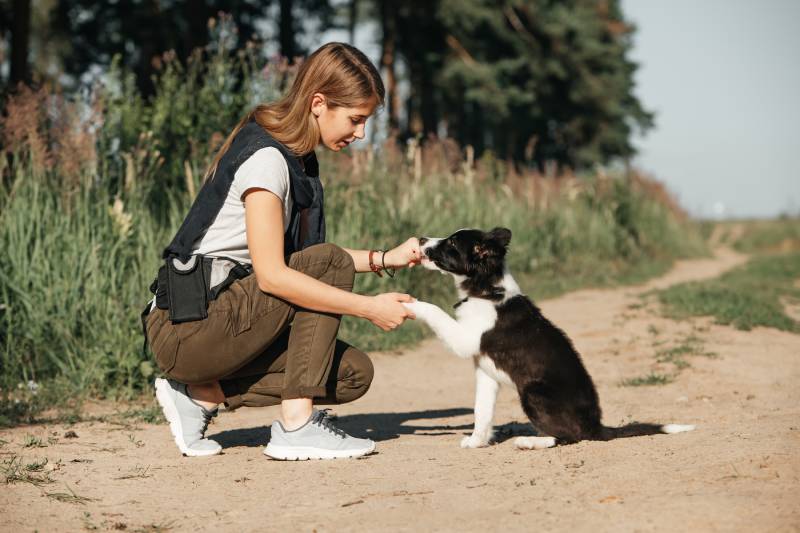
As much as it would be nice for a dog to learn manners on their own, this just isn’t possible. Puppies need training, and training takes time and patience. Without proper training, your puppy won’t understand you when you tell it to “settle” or “sit.”
Using positive reinforcement, train your puppy to simple commands such as “sit” and “stay” before moving on to the slightly tricker “settle.”
When your dog sits, settles, or displays calm behavior, say the word “settle” right before using a clicker and offering them a treat. Repeating this will help your pup associate calm and settled behavior with the word “settle,” and with tasty rewards.
4. Poor Diet
Low-quality dog food that contains sugar, coloring, and byproducts could have an adverse effect on your pup’s behavior. This may seem like an odd connection at first, but when you consider the fact that junk food also has an adverse effect on a person’s mood and behavior, it’s not so hard to believe.
Eliminating bad ingredients from your pup’s diet may help them to become less hyperactive. Additionally, good-quality food that includes all the nutrients, vitamins, protein, and calories that your puppy needs will ensure they have the best start to life possible when it comes to their overall health.
5. Underlying Medical Conditions
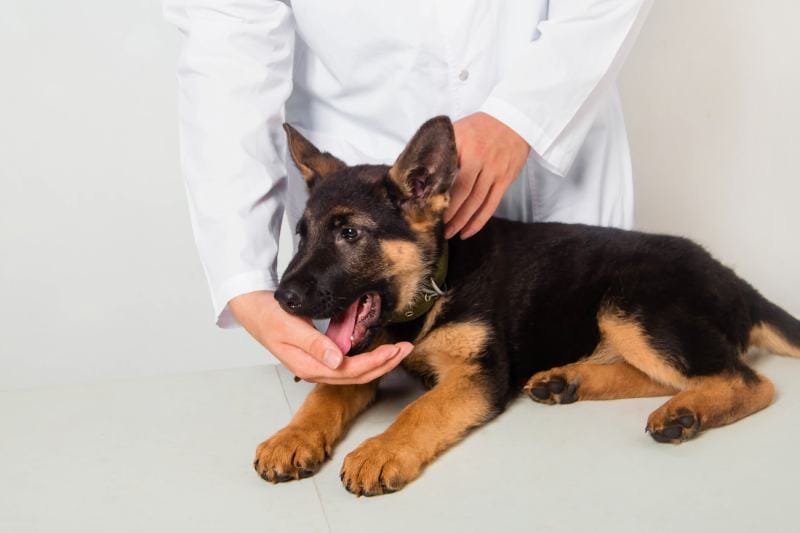
In some rare circumstances, a puppy’s hyperactive behavior may be down to an underlying medical condition. Some medical conditions that can affect a dog’s activity level include metabolic disease associated with liver dysfunction, hyperthyroidism, and some neurological conditions.
If your puppy’s hyperactivity persists, or if you’re concerned about it, you should give your vet a call. It is especially important to take your puppy to the veterinarian for a checkup if you notice a sudden change in their behavior.
Tips for Discouraging Hyperactivity
- When you bring your puppy home, introduce a daily routine and stick to it. A consistent routine will teach your puppy the proper times for feeding, playing, grooming, and resting.
- Make sure your puppy is getting the correct amount of physical exercise every day. If you’re taking them for a walk, try to change the route sometimes to keep them mentally engaged as they discover new sights and scents.
- Provide your puppy with toys and puzzles to explore and play with at home.
- Train your puppy new tricks and commands, starting with simple commands such as “sit” and “stay,” and moving on to more fun and complex tricks such as “roll over.”
- When your puppy is being hyperactive, ignore them. Your puppy will receive any attention you give as reinforcement that they should carry on.
- When your puppy is calm and settled, reward them.

Consider Your Puppy’s Age
Remember that your puppy is going to go through several stages as they develop and find their place in the world. It can take up to 2 years for a dog to reach adulthood. Up until this point, they may still occasionally exhibit energetic puppy-like behavior.
It’s vital to stay patient with your puppy, but it’s also equally vital to remain consistent. If you’ve set down rules, you must keep to them, or your puppy will get confused.
Conclusion
Puppies are known for their boundless energy. If your puppy is being hyperactive, it’s most likely down to a lack of physical or mental stimulation, or training. If you are concerned about your puppy’s hyperactivity, get in touch with your vet and schedule a checkup to rule out any underlying health issues.
Featured Image Credit by: pattarawat, Shutterstock


